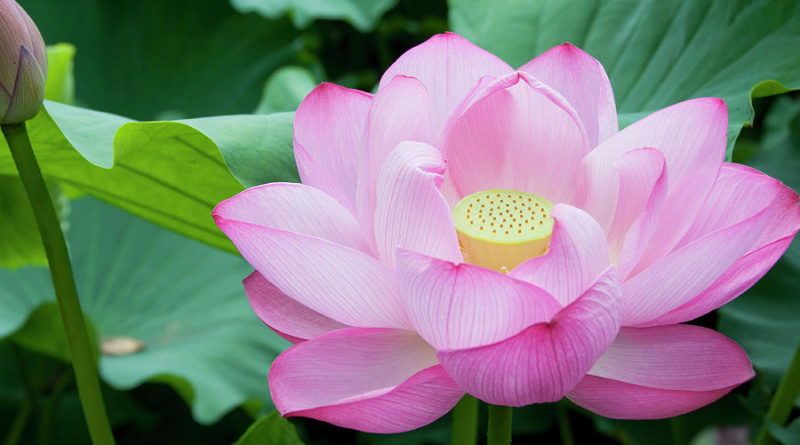Aṅguttara Nikāya
1. Ekakanipāta
XIV. Etadaggavagga
These are the foremost
1. Paṭhama vagga.
188. Bhikkhus, out of my disciples Kondaṭña who knows realized first.
189. Sāriputta is foremost for great wisdom.
190. Mahāmoggallāna for supernormal powers.
191. Mahakassapa for observing austerities.
192. Anuruddha for the heavenly eye.
193. The son of Kaligodhaya for birth in high families.
194. Lakuṇḍaka Bhaddhiya for lacking in charm.
195. Piṇḍola Bharadvaja for the lion’s roar
196. Puṇṇa Mantaniputta to give a dhamma talk.
197. Mahakaccana to explain in short.
2. Dutiya vagga
198. Bhikkhus, out of my disciples Culapantaka is foremost for creating mental images.
199. Culapantaka for rolling back the mind.
200. Mahapantaka for rolling back perceptions.
201. Subhuti for dwellling in the forest.
202. Subhuti for receiving gifts.
203. Revata Khadiravaniya to gain the forest perception
204. Kankharevata for attaining janas
205 Sona Kolivisa for aroused effort.
206. . Sona Kotikanna for polite speech.
207. Sivali for gains.
208. Vakkali for release through faith.
3. Tatiya vagga.
209. Bhikkhus, out of my disciples, Rāhula is foremost for desiring the training.
210. Ratthapala for going forth out of faith.
211. Kuṇḍadana for receiving the first morsels.
212. Vangisa for explaining the Teaching.
213. Upasena Vangantaputta for friendliness all round.
214. Dabba Mallaputta for the preparation of beds and seats.
215. Pilindavaccha for adoration by the gods.
216. Bahiya Daruciriya for realizing the Teaching instantly.
217. Kumarakassapa to make friendly verbal arrangements
218. Mahakottita for analytical knowledge
4. Catuttha vagga
219. Bhikkhus, out of my disciples Ānanda is the foremost for learnedness.
220. Ānanda for mindfulness.
221. Ānanda for correct behaviour.
222. Ānanda for courage.
223. Ānanda for attending on others.
224. Uruwela Kassapa for a large number of followers.
225. Kāludayi to reconcile clans.
226. Bakula for few ailments.
227. Sobhita for recollecting previous births.
228. Upali for retaining the discipline.
229. Nandaka for advising bhikkhunis.
230. Nanda for protecting the sense doors.
231. Mahakappina for advising the bhikkhus.
232. Sagata for entering the fire element.
233. Rādha for explaining the Teaching.
234. Mogharaja for wearing rough robes
5. Paṭcamavagga
235. Bhikkhus, out of my bhikkhuni disciples Mahapajāpati is the first to realize arahantship.
236. Khemā for high wisdom.
237. Uppalavannā for psychic powers.
238. Patacarā for keeping the discipline.
239. Dhammadinnā for explaining the Teaching.
240. Nandā for attaining jhana,
241. Sonā for aroused effort.
242. Bakulā for the heavenly eye.
243. Bhaddā Kundalakesā for realizing the Teaching instantly
244. Baddha Kapilāni for recollecting previous births.
245. Baddha Kaccānā for great wisdom.
246. Kisagotamī for wearing rough robes.
247. Singālakamātā for release through faith.
6. Catthavagga.
248. Bhikkhus out of my lay disciples the first to take the three refuges are Tapassu and Balluka, the
tradesmen
249. Anāthapiṇḍika, that is the householder Sudatta is the foremost lay devotee.
250. Citta Macchikasandika the householder for explaining the Teaching.
251. Hatthaka Aalavaka to establish liberality, kind speech, leading an useful life and a
state of equality among the others.
252. Mahanāma the Sakya is the foremost distinguished devotee.
253. Ugga the householder of Vesāli the most pleasant devotee.
254. Uggata the householder of Hatthigāma for attending on the Community.
255. Surambaṭṭha for reconcillation
256. Jīvaka Komārabhacca for pleasantness to all persons.
257. Nakulapita the householder the best confide
7. Sattama Vagga.
258. Bhikkhus, out of my lay female disciples the first to take the three refuges is Sujāta the daughter of
Seniya
259. Visakhā the mother of Migāra is the foremost female devotee.
260. Kujjuttarā the most learned.
261. Samawathie for developing loving kindness.
262. Uttaranandamātā for jhanas.
263. Suppavāsa the daughter of the Koliyas the most pleasant devotee.
264. Suppiyā the female lay devotee for attending on the sick.
265. Katiyāni for permanent pleasantness.
266. Nakulamāta, the householder’s wife for undivided pleasantness.
267. Kāli Kulagharikā, the female lay devotee for adhering to hearsay.

